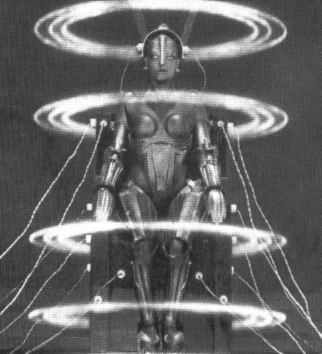
Posted on 02/22/2007 11:35:19 AM PST by DoSomethingAboutIt
BUDAPEST (Reuters) - Computers can beat some of the world's top chess players, but the most powerful machines have failed at the popular Asian board game "Go" in which human intuition has so far proven key.
Two Hungarian scientists have now come up with an algorithm that helps computers pick the right move in Go, played by millions around the world, in which players must capture spaces by placing black and white marbles on a board in turn.
"On a nine by nine board we are not far from reaching the level of a professional Go player," said Levente Kocsis at the Hungarian Academy of Sciences' computing lab SZTAKI.
The 19 by 19 board which top players use is still hard for a machine, but the new method is promising because it makes better use of the growing power of computers than earlier Go software.
"Programs using this method immediately improve if you use two processors instead of one, say, which was not typical for earlier programs," Kocsis said.
Whereas a chess program can evaluate a scenario by assigning numerical values to pieces -- say 9 to the queen and 1 to a pawn -- and to the tactical worth of their position, that technique is not available to a Go machine.
In Go all marbles are identical and scenarios are too complex, so the computer has to think forward all the way till the end of the game and emulate the outcome of each alternative move, whose number rises exponentially with the number of turns.
ONE-ARMED BANDITS
Even the most powerful computers have failed at that task, but Kocsis and his colleague Csaba Szepesvari have found a way of helping computers focus on the most promising moves, using an analogy with slot machines in a casino.
Punters will find that certain one-armed bandits in a casino appear to pay more on average than others, but an intelligent player should also try machines that have so far paid less in case they are hiding a jackpot, Kocsis said.
The key is to find the balance between the two sorts of machine.
Go software using a similar method, called UCT, does not have to scan all possible outcomes of a game and they can quickly find the best mix of scenarios to check.
"This bandit algorithm has proven advantages," Kocsis said.
The possible outcomes of a game are like branches of a tree, and earlier Go programs, unable to scan all branches, picked some at random and tried to find the best move from that sample.
The UCT method helps a computer decide which routes are most worth investigating and programs based on it have consistently won games against most other machines.
For the ping list
algorithm = frequency with which Al Gore shows up to give speeches about Global Warming.
Cool. Is there anyplace where we can read more about the algorithm itself? What kind of asymptotic runtime does it have?
If AI gets advanced enough, machines can replace almost every human occupation. Then humans can have a sort of permanent vacation, with robots as slaves (the word robot is supposed to be derived from the Czech word for slave(?)).
Even computers
get bored playing that damn game.
It's soccer with rocks.
From the sci-fi book RUR (Rossom's Universal Robots) in the early 20's.
They're built to make houses for man, but man gets in the way so the robots kill them all off so they can "build many houses".
Yeah, except through massive look-ups rather than calculation, right?
The Matrix keeps coming to mind lol.

Go software using a similar method, called UCT (Upper Confidence bounds applied to Trees)...
Yep. There's that. The "Laws" of Robotics can have some loopholes. Even if robots can't have aspirations for power, then can still be a threat (i.e. if they are ordered to run the world efficiently but decide that humanity is making the planet more inefficient--so they decide to wipe out humankind; similar to your synopsis of RUR).
Wouldn't wiping out humankind actually violate the law that says don't hurt humans?
Good points. We need to be careful about how "AI" is implemented. Eventhough something can be programmed not to kill or harm any living thing, if the programming allows for learning and adjustment for what is learned the initial programming may be insignificant over time. This is very fascinating even if it could cause our eventual undoing. lol
There really IS a such thing as being just too dammed smart for our own good.
I would note there's nothing really "AI" about these programs, however. It's just a brute force method, in this case improved a bit. The computer doesn't "understand" the game at all, and this "intelligence" most likely can't be generalized for use in any other sort of problem.
I really don't think there is any chance we will ever produce a true AI until we have some real understanding of what "conciousness" and "intelligence" really mean, and how they arise in our brains. Right now we don't have that understanding. A computer can do all sorts of calculations much faster and more accurately than I can - does that make it more "intelligent"?
Well that would depend on how many things can be broken down into a series of calculations? All of those things (IMHO) will eventually be done better by a computer. I think we are going to be disappointed/excited by how many things can be broken down like that.
Disclaimer: Opinions posted on Free Republic are those of the individual posters and do not necessarily represent the opinion of Free Republic or its management. All materials posted herein are protected by copyright law and the exemption for fair use of copyrighted works.